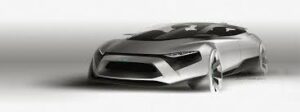Winter can be a challenging time for car owners, as cold temperatures, snow, and ice can take a toll on a vehicle. To ensure your car is ready to handle the challenges of winter, it’s important to take care of it properly.
Some useful tips for taking care of your car in the winter include checking the battery, keeping the fuel tank full, checking the tires, using the right antifreeze, keeping the car clean, having an emergency kit on hand, avoiding long periods of idling, and having the car serviced regularly.

By following these tips, you can help keep your car running smoothly and safely throughout the winter season.
Table of Contents
ToggleCheck your car’s battery:
It’s important to make sure your car’s battery is in good condition before the winter season because cold weather can put a strain on the battery.
When the temperature drops, the battery’s ability to hold a charge decreases, making it harder for the car to start. To ensure the battery is fully charged and capable of starting the car in cold weather, you can have a mechanic test the battery.
Keep your fuel tank full:
Keeping your fuel tank at least half full at all times during the winter can help prevent issues with the fuel line freezing and the fuel pump sucking in moisture. A full tank will also give you a longer range in case you get stranded in cold weather.
Check your tires:
Properly inflated tires and plenty of tread are important for safe driving in winter weather.
Inflated tires can help improve your car’s handling on icy or snowy roads, and having enough tread can improve traction on these surfaces. It’s a good idea to check the tire pressure and tread regularly throughout the winter.
Change your oil:
Using winter-grade oil in your car can help reduce wear on the engine and improve cold weather performance. Winter-grade oil is designed to flow more easily at lower temperatures, which can help reduce friction and wear on the engine.
Use the right antifreeze:
Different types of antifreeze have different freezing points, so it’s important to use the type that is appropriate for the average winter temperature in your area. Using the wrong type of antifreeze can lead to issues such as overheating or freezing of the coolant system.
Keep your car clean:
Regularly cleaning the exterior of your car, especially the underside, can help remove any salt or other de-icing chemicals that can corrode the metal. These chemicals can be harsh on the metal and cause it to rust or become weakened over time.
Keep an emergency kit in your car:
It’s a good idea to keep an emergency kit in your car in case you get stranded in cold weather. The kit should include items such as a blanket, flashlight, extra warm clothing, and a small shovel. These items can help you stay warm and safe if you get stuck on the side of the road.
Don’t let your car idle for long periods of time:
While it may be tempting to let your car idle to warm it up on cold mornings, this can waste fuel and cause excess wear on the engine. Instead, start driving as soon as possible to warm up the engine. This will help save fuel and reduce wear on the engine.
Have your car serviced:
Having your car serviced before the winter season can help ensure it’s in good working order and ready to handle the challenges of cold weather.
During a service, a mechanic can check for any potential issues and perform any necessary repairs or maintenance. This can help prevent breakdowns and other issues that can be exacerbated by cold weather.
Related Posts and Links
- 5 Important Tips to Maintain Your EVs
- Top 10 Tips To Take Care of Your Car – Stouffville Hyundai























